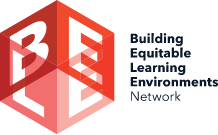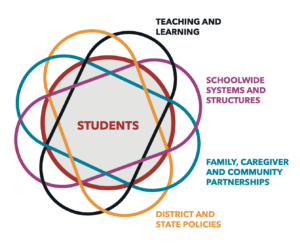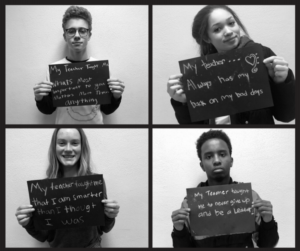[Cross-posted from the BELE Network Medium]
By The BELE Network
Research shows social-emotional learning has a demonstrable effect on school climate, student behavior and academic performance. It is a growing priority for educators who are committed to creating equitable learning environments for every student. However, with most students learning through screens and at a distance, it can be difficult to figure out how to build and sustain the relationships that are so critical to student success.
Recently, the BARR Center, an education non-profit dedicated to creating equitable learning environments, was invited by Minnesota’s Commission of Education to share practical strategies and data that schools can use to incorporate more relationship building into their distance learning plans during their Professional Development days.
Core to BARR’S work is the knowledge that education requires both the head and the heart. Currently, BARR works in 170 schools in eighteen states plus the District of Columbia, impacting more than 100,000 students, especially students of color and students from low-income backgrounds. Their efforts to change teachers’ and students’ perceptions of themselves and each other has led to demonstrable positive outcomes, such as enhanced collaboration among teachers, more positive, intentional relationships between students and teachers, and improved academic achievement and graduation rates.
BARR educators and staff presented to more than 1,500 educators on best practices from Minnesota BARR schools around relationship-building during COVID-19 and how to enhance the three main relationships that BARR prioritizes:
- Staff-to-staff
- Staff-to-student
- Student-to-student
The hour-long webinar also covered how technology could be used to engage students’ families, as well in their education.
For a recording of the Minnesota webinar, visit this link. The presentation deck and a one-pager are also available online.
Building Assets, Reducing Risks (BARR) is a strengths-based model that provides schools with a comprehensive approach to meeting the academic, social, and emotional needs of all students. Schools within the BARR Network harness the power of data and relationships to empower all students to thrive within and outside the classroom.
Designed by an educator, the BARR model is rooted in the belief that growth is possible and within reach for every school, with the same students and the same teachers.
The BELE Network is dedicated to reimagining our inequitable school system that has failed too many for too long, and is committed to transforming our classrooms into learning environments that nurture the intellectual, emotional and cultural growth of all students — especially students of color.
Learn more about BELE on our website, and access our resource library to make your learning environments more equitable.






Leave a Reply